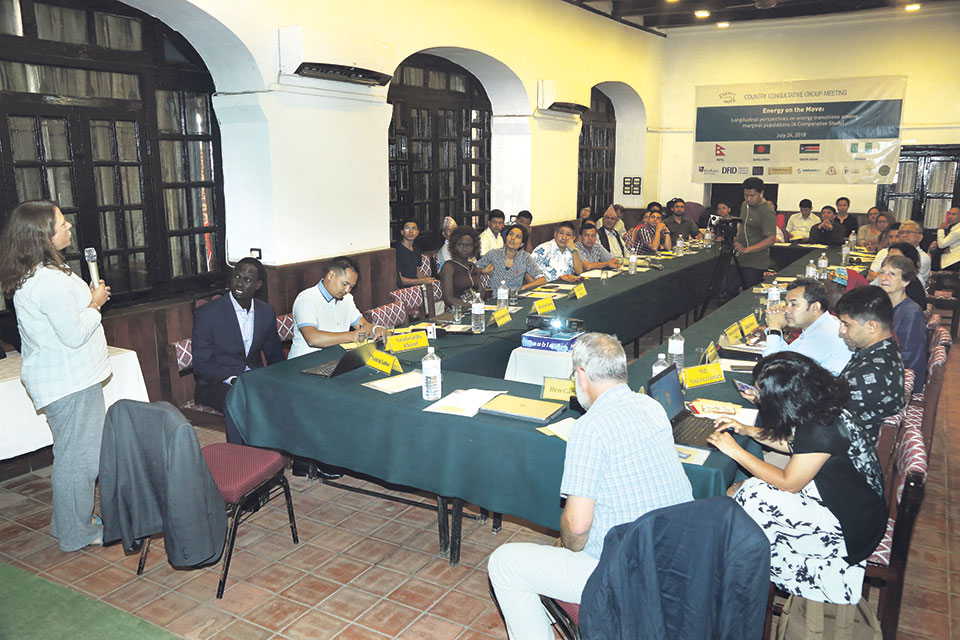
OR
Researchers underscore need of access to energy in slums, remote areas
Published On: July 25, 2018 04:30 AM NPT By: Republica | @RepublicaNepal

KATHMANDU, July 25: A team of international researchers have underscored the need of providing access to quality energy to people from disadvantaged groups and remote areas to improve their livelihood.
The researchers of a project led by Durham University had analyzed the access to electricity in slum areas and settlements of backward communities in the four countries including Nepal, Bangladesh, South Sudan and Nigeria.
In its presentation, the Nepali team said it conducted survey on access to energy at various settlements in Kathmandu and Kavre districts. The Nepali researchers said their findings showed that majority of the informal settlers cooked food using Liquefied Petroleum Gas (LPG). People in urban slum areas complained that there is no government support to buy solar system while the government provides subsidy only in the villages for solar system.
“People think that the government should treat the communities living in the informal settlements with equal dignity to other people,” read the report of Nepali team comprising of Ben Campbell, Sambriddhi Kharel and Nabaraj Lama. “They feel excluded and marginalized by the government.”
Ram Krishna Humagain, general secretary of National Association of Community Electricity Users, Nepal, said though Nepal has achieved significant progress in rural electrification, such works were in a vulnerable state due to lack of necessary acts to properly run such programs.
Similarly, Raihana Ferdous, Md Nadiruzzaman and Md Shamsuddoha of Bangladesh; Fatima Adamu, Plangsat Bitrus Dayil and Gina Porter of Nigeria and Prof Leben Nelson Moro, Abraham Diing, Tabu Elder, James Chienien and Cherry Leonardi of South Sudan described the challenges in their respective countries.
Some of the researchers underscored the need of including women and representatives from marginalized communities in the decision-making levels of the concerned bodies so that electricity-related challenges can be properly understood and tackled amicably.
You May Like This

"Access to electricity to all areas in the country in three years," assures Energy Minister Sharma
TAPLEJUNG, Feb 4: Minister for Energy Janardan Sharma has pledged that all places in the country will be connected to... Read More...

Renewable energy technology to be extended in rural areas: Minister Chaudhary
LALITPUR, Nov 4: Minister for Population and Environment Mithila Chaudhary has stressed on extending the access to renewable energy technology... Read More...

We need two more years to end load-shedding: Energy Minister
KATHMANDU, Aug Sept 1: It is nearly a year since the government announced to reduce significantly within a year and completely... Read More...





Just In
- CM Kandel requests Finance Minister Pun to put Karnali province in priority in upcoming budget
- Australia reduces TR visa age limit and duration as it implements stricter regulations for foreign students
- Govt aims to surpass Rs 10 trillion GDP mark in next five years
- Govt appoints 77 Liaison Officers for mountain climbing management for spring season
- EC decides to permit public vehicles to operate freely on day of by-election
- Fugitive arrested after 26 years
- Indian Potash Ltd secures contract to bring 30,000 tons of urea within 107 days
- CAN adds four players to squad for T20 series against West Indies 'A'













Leave A Comment